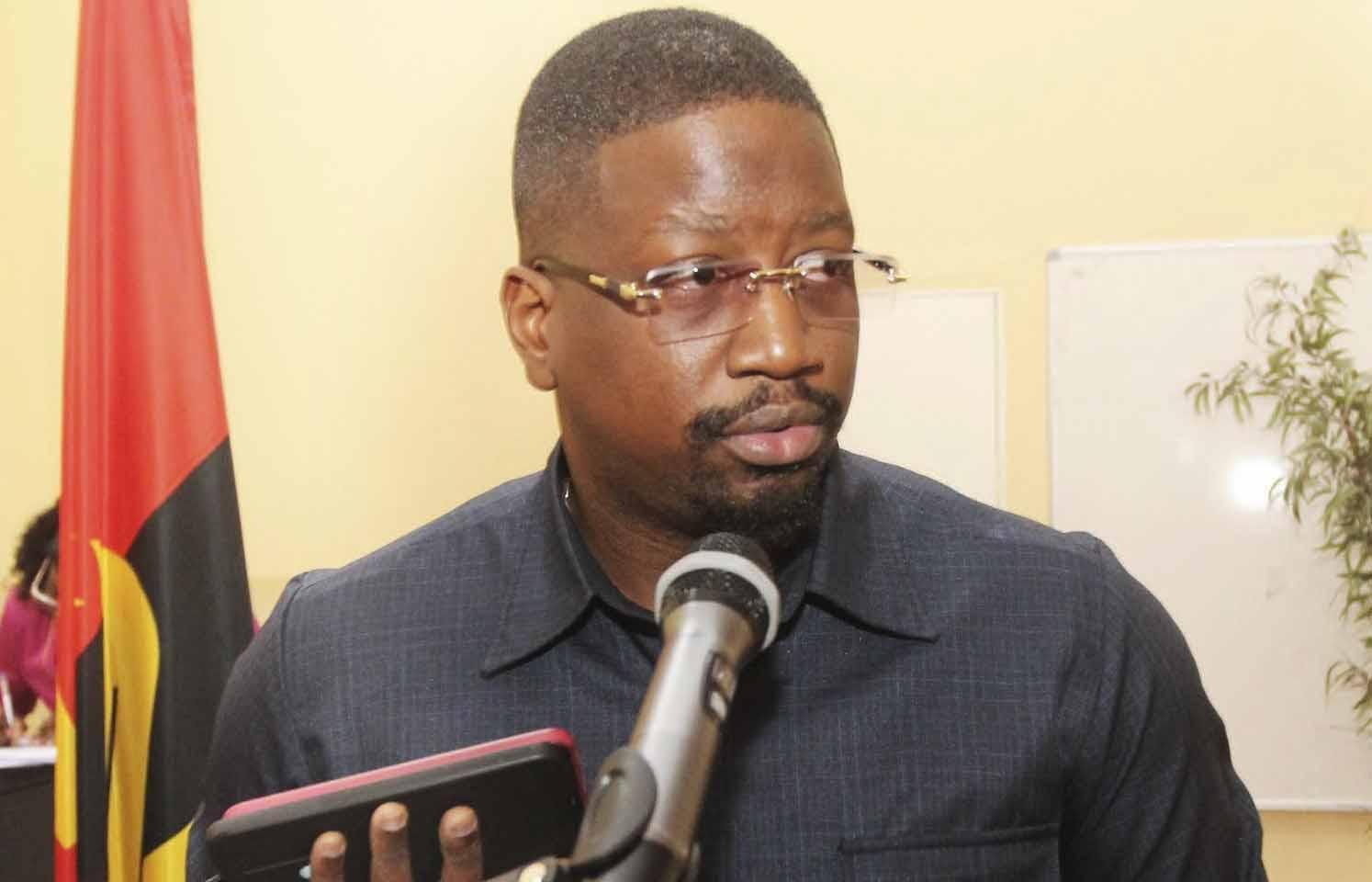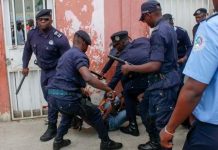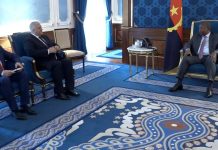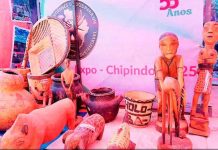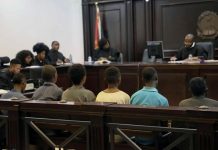Africa-Press – Angola. A set of five works of painting and three of sculpture, which address the hybrid forms of influence of the Cokwe culture, by the plastic artist Francisco Van-Dúnem “Van”, will be on display from Thursday, until the day 26th of July, at the Iron Palace, in Luanda.
In an interview, the artist said that the work, produced with acrylic on canvas, mixed techniques, inlaid and intervened objects, results from a revisitation of the Cokwe culture, the result of a field expedition to check the existing bibliography regarding this tradition. endogenous.
The objective, he explained, is to get into the native culture of the peoples of Lunda Sul to better understand whether the content produced by nationals and foreigners corresponds to reality.
Van said that he found that parts of what he noticed are on the verge of extinction, but, nevertheless, much matches the literature.
He stated that this cultural reality should be added, because a good part of the books were written in the colonial period and by Westerners, thus presenting some gaps.
Francisco Van-Dúnem “Van” holds a master’s degree in artistic education from the University of Surrey Roehampton, London, in collaboration with the Instituto Superior Politécnico de Viana do Castelo (Portugal), founding member of the National Union of Plastic Artists and co-founder and professor at Medium School of Plastic Arts in Luanda.
He was director of the National Directorate of Artistic Training (DINFA) and is the holder of the Mural Cidade de Luanda (1984), for painting, Banco de Fomento e Exterior of Portugal (1990) and ENSA Arte, in the painting category, in editions of 1996 and 2004.
He has more than twelve individual exhibitions in the country and abroad, the first, called Drawing, Engraving and Painting, presented in Luanda (1984), the second Painting, in Setúbal (1993), the third Individual Participation, in the 23rd Bienal de São Paulo (1996) and the fourth Expo Cidade de Luanda, also in the capital (2006).
He participated in collective exhibitions of renowned artists in several countries, including Algeria, Cape Verde, Zambia, Gabon, Cuba, Brazil, Spain,The Water and Sanitation Master Plan for Cunene province will allow greater accessibility of drinking water to the population, in view of the drought that has been plaguing the region, said this Thursday, in Ondjiva, the representative of the National Directorate of Waters, Osório Lológio.
Speaking at the opening of the Workshop to present the document, he said that it will contribute to reviewing the needs for access to water and the sanitation conditions of urban and peri-urban areas in the region.
According to the official, the Angolan government has defined several actions aimed at guaranteeing universal and equitable access to safe drinking water for all, access to adequate sanitation and hygiene, as well as eliminating open defecation, whose focus is on women, children and vulnerable people.
He referred that the document is part of the Government’s policy of pursuing the Sustainable Development Goals (SDGs) defined by the United Nations, which aim to create a global model of governance that includes the protection of the environment and the promotion of well-being for all by 2030.
Osório Lológio stressed that the integrated infrastructure project will be carried out over a period of 20 years and is part of a set of actions aimed at training, operating and maintaining the Public Water and Sanitation Company.
This action, he underlined, results from a contract established with a Portuguese consortium, which aims to draw up a sanitation plan for the cities, financed by the African Development Bank.
Meanwhile, he stressed that the workshop aimed to make local entities aware of the result of the studies, which will define inclusive and resilient solutions, through the collection of proposals to be integrated in the final version of the document.
In turn, the vice-governor for Technical Services and infrastructure, António Matias, considered the master plan and water projects for Cunene opportune, at a time when it is debating specific climatic characteristics that lead to cycles irregular floods and droughts.
In this regard, he highlighted the implementation and execution of the phased and integrated management of structuring projects carried out by the Angolan State with a direct impact on the life of the population.
The document is an initiative of the Ministry of Energy and Water that aims to define the objectives to be achieved with regard to water supply and wastewater treatment in urban and peri-urban areas where EPAS intervenes.
Members of the government, municipal administrations, associations, religious entities, civil society organizations, authorities of traditional power, among others, participate in the aforementioned workshop. FI/LHE/ART
Portugal, Sweden, Germany and the United States of America .
For More News And Analysis About Angola Follow Africa-Press

